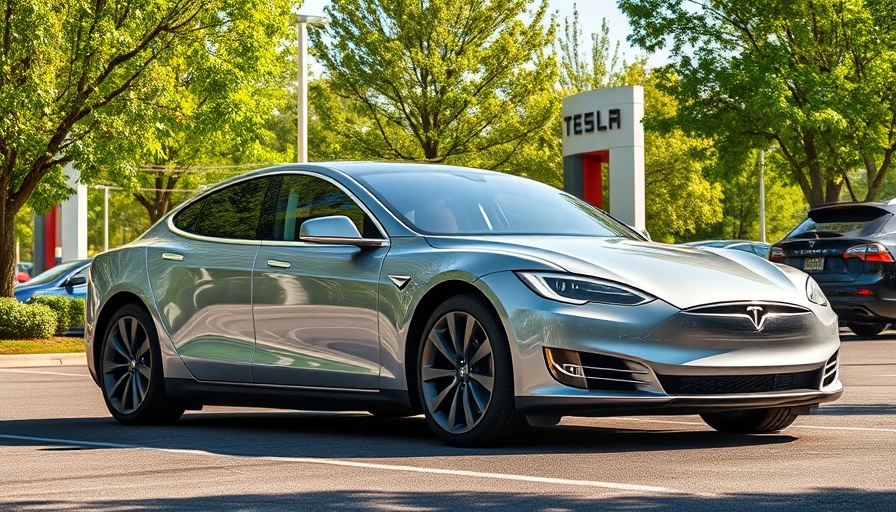
Tesla's Profit Dilemma: A Closer Look
The electric vehicle (EV) market is facing turbulent times, and no one is feeling the heat quite like Tesla. Recently, the automaker reported a staggering 71% drop in net income, equating to only $409 million from a revenue of $19.3 billion for the first quarter of the year, following the delivery of 337,000 EVs. With this significant decline, Tesla finds itself navigating treacherous waters amid changing public sentiment towards CEO Elon Musk and emerging competition.
Understanding the Sales Decline
Tesla's recent sales figures indicate its worst delivery quarter in over two years, marking the company’s first year-to-year sales drop. A noteworthy aspect of this financial report is the reliance on zero-emissions tax credits, which added a cushion to its income. Without these credits, the report would have showcased a significant loss rather than a slim profit. This reliance highlights a troubling trend for the future of Tesla's financial stability.
The Impact of Leadership on Brand Image
Musk’s polarizing public persona, particularly his alignment with far-right politics and his involvement in the Trump administration, has reportedly soured public perception of Tesla. As companies increasingly prioritize social responsibility, Tesla's reputation may be at risk. This sentiment shift could drive potential customers to competitors that align more closely with prevailing values around corporate ethics and social responsibility.
Challenges Looming for Tesla's Future
Industry analysts express concern about Tesla’s aging vehicle lineup and the lackluster reception of its latest model, the Cybertruck, which has not met Musk's expectations as a game-changer. As the market is rapidly evolving, competitors are rolling out newer models that may better appeal to consumers demanding innovation and sustainability. Tesla’s ambitious plans to develop more affordable EVs could be overshadowed by these challenges if they do not act swiftly.
Preparing for the Next Phase in Electric Mobility
Looking forward, Tesla is affirming its commitment to producing affordable models slated for a June production start. The platform will utilize aspects of next-generation technology while maintaining compatibility with existing manufacturing lines. This carries significant implications for Tesla’s operational efficiency and market relevance in the highly competitive EV field.
Investor Sentiments Amidst Declining Profits
Despite alarming profits drops, Tesla's stock rose in after-hours trading following Musk's announcements regarding future production plans and his commitment to devote more attention to Tesla. The stock market's reaction reflects investors' optimism based on Musk's previous track record for turning adverse situations around, though it raises questions about reliance on promised innovation rather than currently solid numbers.
The Role of Tariffs and Trade Wars
Tesla has issued warnings to shareholders regarding potential impacts from ongoing trade wars and tariffs, specifically highlighting those directed at China. This trade environment could exacerbate Tesla's supply chain challenges, particularly in its Energy division. As companies adapt to shifting trade policies, navigating these waters will be crucial for maintaining market share.
Taking Action: What Professionals Should *Know*
For tech-driven professionals and industry stakeholders, being aware of Tesla's unfolding narrative is paramount. As the industry evolves, lessons can be drawn from Tesla's experience, illustrating the importance of adapting to changing consumer perceptions, embracing market trends, and ensuring that product innovation aligns with consumer expectations. Emerging technologies and trends in EV design could change the playing field dramatically, impacting investment opportunities, and strategic planning in the tech sector.
As Tesla faces an increasingly competitive environment alongside internal and external pressures, staying informed and adaptive becomes critical for all stakeholders. Engaging with Tesla's evolving strategy can serve as a vital case study in navigating disruption in the modern automotive landscape.
 Add Row
Add Row  Add
Add 




 Add Row
Add Row  Add
Add 

Write A Comment